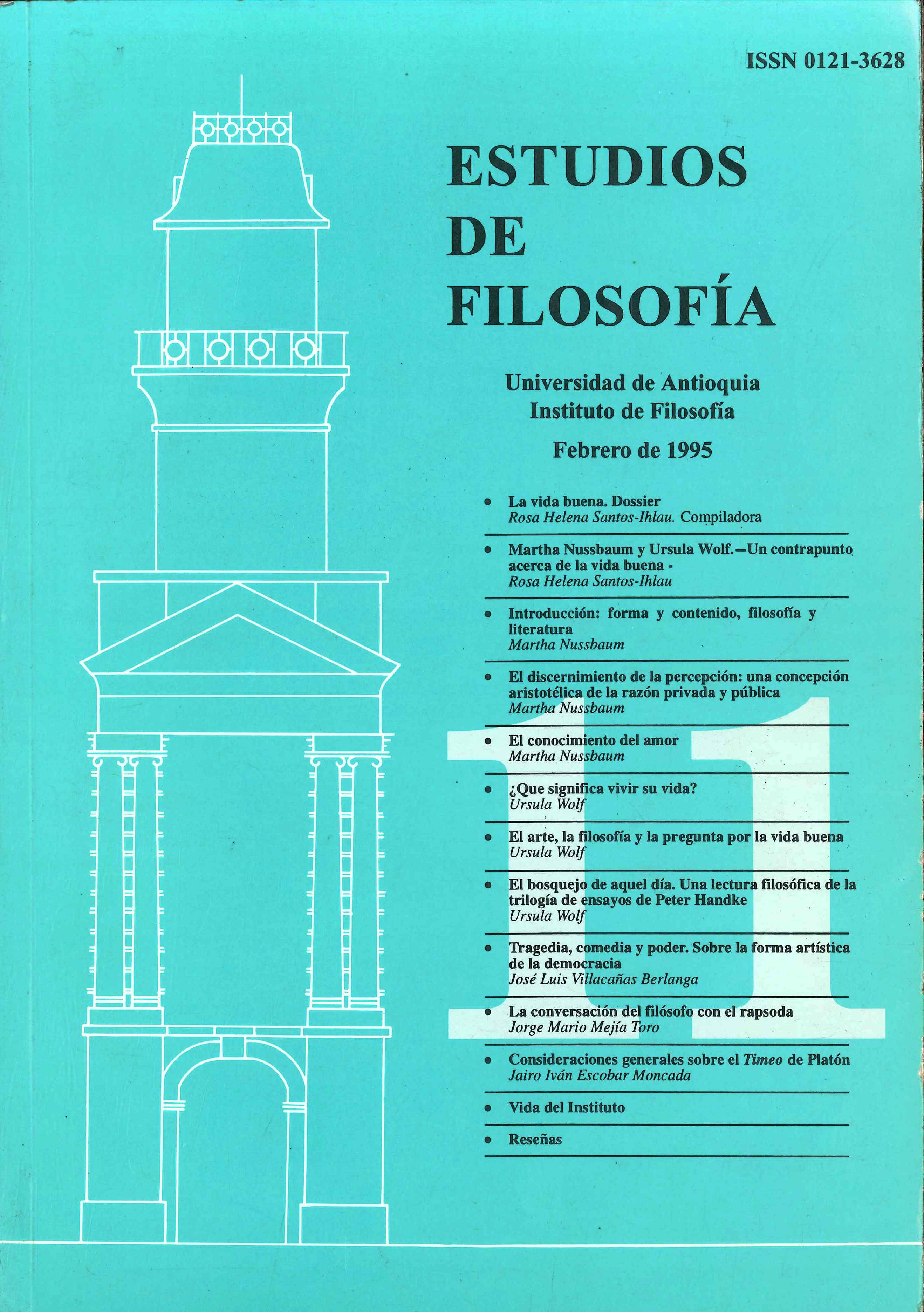The philosopher's talk with the rhapsodist
DOI:
https://doi.org/10.17533/udea.ef.338798Keywords:
Plato, Socrates Ion, politics, poetry, rhasopdyAbstract
By dividing the dialogue into a progressive series oflayers this paper attempts to place Ion within the cave of Plato's Politics with a view to gleaning maximum benefit from his juvenile shortcomings with the totalisation principie inherent to political thinklng, namely with "poetic" construction of a reflection-regulating space and which in Plato's works ís dubbed polis. As such, this demands a new reading of Plato's Politics as a work of art which proposes both in and through the possibility that it opens up, a new type of poetry, viz. philosophical poetry, which contrary to traditional poetry deemed to be valid in Plato's age, does not narrate facts, but rather creates them. The synthesis of this double movement leads us to posit three escape-routes from the vicious circle of violence: firstly, the theory of inspiration in Ion which prefigures the absence of myth, when in The Sophist Plato inverts his very own doctrine; secondly, poetry is that strange production which does not bear "something" from non-being to being; and thirdly, poetics is the protean totality that grafts -in thought- that which swarms and teethes when poetry is no longer seen as such a genre and yet is not quite another.
Downloads
Downloads
Published
How to Cite
Issue
Section
Categories
License
Copyright (c) 1995 Jorge Mario Mejía Toro

This work is licensed under a Creative Commons Attribution-NonCommercial-ShareAlike 4.0 International License.
Authors who publish with this journal agree to the following terms:
1. The Author retains copyright in the Work, where the term "Work" shall include all digital objects that may result in subsequent electronic publication or distribution.
2. Upon acceptance of the Work, the author shall grant to the Publisher the right of first publication of the Work.
3. The Author shall grant to the Publisher a nonexclusive perpetual right and license to publish, archive, and make accessible the Work in whole or in part in all forms of media now or hereafter known under a Creative Commons Attribution-NoCommercia-ShareAlike (CC BY-NC-SA 4.0), or its equivalent, which, for the avoidance of doubt, allows others to copy, distribute, and transmit the Work under the following conditions: (a) Attribution: Other users must attribute the Work in the manner specified by the author as indicated on the journal Web site;(b) Noncommercial: Other users (including Publisher) may not use this Work for commercial purposes;
4. The Author is able to enter into separate, additional contractual arrangements for the nonexclusive distribution of the journal's published version of the Work (e.g., post it to an institutional repository or publish it in a book), as long as there is provided in the document an acknowledgement of its initial publication in this journal;
5. Authors are permitted, and Estudios de Filosofía promotes, to post online the preprint manuscript of the Work in institutional repositories or on their Websites prior to and during the submission process, as it can lead to productive exchanges, as well as earlier and greater citation of published work (see The Effect of Open Access). Any such posting made before acceptance and publication of the Work is expected be updated upon publication to include a reference to the Estudios de Filosofía's assigned URL to the Article and its final published version in Estudios de Filosofía.















